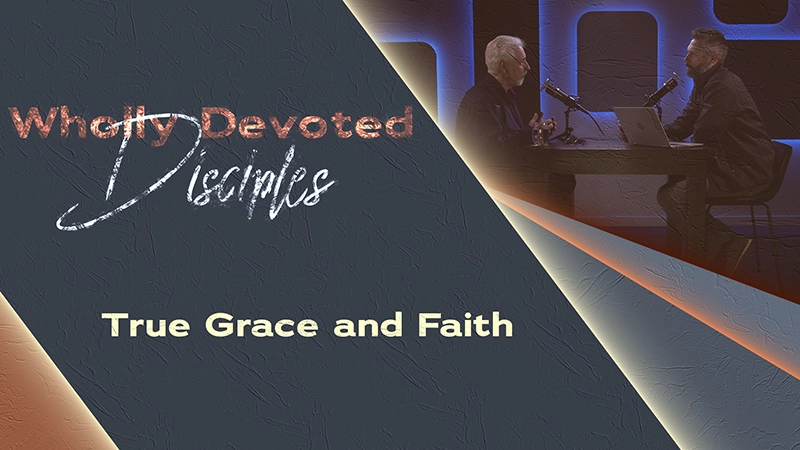
Do Not Love The World
This week's blog post features part of a discussion between Nate and biblical counselor Ken Larkin on 1 John 2:15-17. We would encourage you to take a moment if you can to read and meditate on this passage before reading this interview. (from Purity for Life Episode #497 - Babylon: The Global Mindset of Kosmos)
Nate: OK so for anyone who's listening, basically, what I asked my guest, Ken, to do was to spend some time studying 1 John 2:15-17 and I would do the same. Then we would just come in and talk about it. So, I'm not sure how this is going to go. You have notes and I have notes, and this will be completely free flowing. So, let me just read the passage and then I'll open it up to you and you can just give some initial thoughts. This is from the ESV.
“Do not love the world or the things in the world. If anyone loves the world, the love of the Father is not in him. For all that is in the world—the desires of the flesh and the desires of the eyes and pride of life—is not from the Father but is from the world. And the world is passing away along with its desires, but whoever does the will of God abides forever.”
So, I'll just open it up to you for something that jumped out to you that you want to share.
Ken: Yeah. One of the first things that really jumped out to me is the fact that a lot of times when I'm thinking of worldliness in general, I'm thinking of outward things and what I'm doing outwardly. But one’s behavior is just fruit of where their heart is anyway. So, John is actually talking about a heart posture here. Love not the world. And then he goes on to say what the things of the world are. Those are actually heart issues and your outward lifestyle is going to be indicative of where your heart is.
Nate: Ok. So, sometimes when we think about worldliness, we're trying to figure out, what things can I do and what things can I not do. But you're saying that when you read this passage, it's not so much about the external things, it's the internal things. When I studied this passage, what was interesting to me was when he says, “Do not love the world,” it gets you in the mindset of asking, “what is the world?” But he uses the phrase later in verse 16, “For all that is in the world.” And then he talks about lust and pride and that's just very interesting to me. He's not talking about systems. He's not talking about activities. He's saying everything in the world. Lust and pride. This is what you can't devote your life to. When it says do not love the world, that's the Greek word agape, which in this context is meaning the ruling passion of your life.
{{blog-bbaby="/blog-ads-storage"}}
Ken: Yeah. And he's telling us that because the world caters to those things. Everything around us is moving in that direction and if we're not separate, then we're going to be in that same flow.
Nate: Can you describe that flow? What are you talking about when you say that?
Ken: It is the flow of living to satisfy self. To fulfill the desires of the flesh. I looked “fulfilling the desires of the flesh” up in the original language and it was talking about animalistic appetites. And this same usage is used in referring to the lust for physical pleasure or even overindulging in gluttony or getting drunk. Then moving on from those physical lusts, there is the lust of the eyes. Even this sort of lust can still lend itself to sexual lust, but it could also just be a coveting spirit. That could be even just materialism and wanting things. And then there is the pride of life where your heart posture is basically exalting yourself. Whether it's a position or your possessions and it's always in comparison to other people and it comes down to a worldly mentality of wanting to be on top. So, if your life is being devoted to those things, no matter how much you go to church and no matter how much you look to be a godly or a moral individual, you're actually worldly.
Nate: Yeah, I think that can be a challenge to really come to grips with. That if what I'm doing is coming from a selfish motive, then that's what God sees. It’s not as if God is looking to see if we did more good than we did bad. He is not looking and saying, “I see that you're doing, A, B, and C, which is not good, but look at all the good stuff you're doing. You are going to church. You’re an elder. You’re a worship leader.” Doing those good things doesn’t mean that God just overlooks the bad stuff. That’s not the truth of the matter. And it can take some courage to come to grips with the fact that what the Lord is looking at is the heart and even the best things we do can be flowing from a selfish and self-centered motive.
It should give all of us a pause to say, “Wow. Why do I do what I do?” Because if the world is all about the desires of the flesh and the desires of the eyes and the pride of life, we could be doing a bunch of good things and it could be coming from those desires. Because if the desire of the eyes is really about seeing something and wanting it, that could be anything. That could be a position at the church I see open that I want and I'm going after it. That could be I see people's approval and I want that and I'm going after it. That could be, I'm a small group leader and people look up to me and now I'm boasting about it. That's the pride of life. I mean, these things just dig way deep into our lives and that's what John is saying. We can't be devoted to things that lend themselves to the love of the world. The Word of God really does cut like a two-edged sword right into the heart to find out what's really going on. What else did you see?
Ken: One of the things I would say is Jesus said, “where your treasure is there will your heart be also.” And I thought about the direction of one’s life. What are they really seeking after? What's most important to them? So, even though it is a heart issue, what they’re doing on a daily basis will show them where their heart is. If someone is just glutting themselves with entertainment, then obviously that's a sign that they're not seeking first the Kingdom of God.
I thought about a more blatant example of this. Think of someone who doesn't claim to know the Lord or maybe they are a nominal Christian and they're not even living a godly life, but they're doing all these humanitarian things. That doesn't mean they are godly just because they’re doing something right. The general tenor of their life is flowing away from God and toward the world. There is an obvious danger in loving the world and its immorality. Why would he command us not to love the world if there wasn't a danger that even Christians could fall into that.
And it is a commandment. It isn’t just a suggestion. He says blatantly, “love not the world.” And then I thought it was interesting that he even ended this epistle with, “Little children, keep yourself from idols.” So, just the whole idea of what's fueling the direction of your life is where your treasure is. Is there an idol in your life? Is there something worldly? Even if it's just simply a position. It doesn't have to be all the trappings of the world like a new car or a new house. It could just be desiring to promote yourself to be the best at something and to elevate yourself above others. To have power or prestige or just like you said, to look good or to be pleasing to people, but it's still promoting yourself.
















